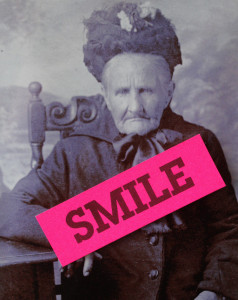Does Botox Help Depression? The Latest Research Findings
Does Botox help depression? The latest research has found that Botox does help depression — but not directly. Rather Botox reduces the symptoms of depression by paralyzing certain facial muscles.
The idea that facial expressions might affect those areas of the brain responsible for emotion, is not new. It goes back to Charles Darwin, who observed: “The free expression by outward signs of an emotion intensifies it.” Research today continues to support this idea.
For example, researchers have discovered that people who were asked to frown during a physically painful situation felt more pain than people who were asked to smile. These results suggest that we can reduce the experience of pain by changing our expression.
But physical pain runs along different neural pathways then emotional pain. Can facial expressions affect emotions as well as physical sensations?
Current research suggests they can. University of Groningen psychologist Judith Grob asked subjects to look at disgusting images. Half the subjects were prevented from expressing disgust by holding a pen between their teeth while viewing images. This kept them from frowning. The other half, however, could respond normally. The subjects who could not frown reported feeling less disgust than those who could — but this came at a cost. While they reported feeling less disgust, they also showed symptoms of emotional repression. That is, they performed worse on a memory test and they tended to view ambiguous situations more negatively. This suggests that at some level they were experiencing disgust, but that experience failed to reach the level of conscious awareness.
Botox, like holding a pen between one’s teeth, also prevents the activation of one’s frown muscles. But this raises an interesting question: does Botox alleviate depression or are the negative emotions merely suppressed?
Currently, no one knows.
The world always looks brighter from behind a smile. – Unknown
This latest study found that Botox helped those diagnosed with a major depressive disorder, but does this mean you should get Botox if you’re this depressed? Absolutely not.
First, having major depression is one of the highest risk factors for suicide. If you’re experiencing a major depressive episode, you need to seek out expert medical help, not a Botox injection.
Second, if you have a non-major form of depression, it may be far better to work through it. Many professionals think that non-major forms of depression are a evolutionary adaptations designed to help us solve complex personal and interpersonal problems. These individuals, some scientists argue, are better off working through their emotions and problems, as long as the depression isn’t life threatening.
Finally, abundant research has found that choosing to see the bright side of things, choosing to really smile, can truly make one feel happier.
But, feeling happier won’t erase one’s fine lines and wrinkles — for that, you will need Botox.
Shizuka new York Day Spa Botox Treatment
Shizuka New York Botox injections are performed by Dr. Olivia Hutchinson, one of Manhattan’s leading plastic surgeons, in our tranquil and non-clinical spa. Botox treatments take as little as 5 minutes to perform, they are effective in smoothing wrinkles between the eyebrows, on the forehead and in reducing fine lines under the eyes, and the effects of treatment last 4-6 months.
Experience what Shizuka New York Botox treatment can do for you by scheduling a consultation with our doctors by phone at (212) 644-7400 or book an appointment online today.
References
- Treatment of depression with onabotulinumtoxinA: A randomized, double-blind, placebo controlled trial, Journal of Psychiatric Research Volume 52, Pages 1–6, May 2014
- Study: For a better workday, smile like you mean it, Brent Scott, Michigan State University, 22-Feb-2011
- Keep smiling: Enduring effects of facial expressions and postures on emotional experience and memory, Cognition and Emotion, 2003, 17 (5), 787-797
- Depression’s Evolutionary Roots, Paul W. Andrews and J. Anderson Thomson Jr., Scientific America, Aug 25, 2009
- Emotion regulation: Affective, cognitive, and social consequences, James J. Gross, Psychophysiology, 39 (2002), 281–291.

